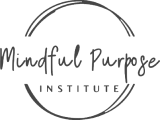What It Really Takes to Be a Tarot Reader (It’s Not What You Think)

Most people picture a tarot reader as someone in flowing robes, gazing into crystal balls, whispering predictions about the future.
But here’s the truth: being a great tarot reader isn’t about mysterious powers, memorizing every single card, or being “born psychic.”
It’s about connection.
It’s about trust.
It’s about guiding someone to see their own wisdom reflected back to them.
And yes — you can learn to do it.
Myth-Busting: What You Don’t Need to Be a Tarot Reader
Before we get into what you do need, let’s clear the table (pun intended).
-
You don’t need supernatural powers. Tarot is about intuition and interpretation, not magic tricks.
-
You don’t have to memorize all 78 cards before you start. Seriously — no one learns it all at once.
-
You don’t need to “predict the future.” The best readings help people navigate the present so they can shape their future.
-
You don’t need to be fearless. Nervous before your first readings? Totally normal.
So… What Does It Take?
1. A Relationship With Your Deck
Tarot isn’t just a pile of pretty cards. It’s a language — and you learn it best by spending time with it.
-
Pull a card of the day each morning.
-
Journal what you see, feel, or sense before looking up meanings.
-
Notice patterns and how certain cards “speak” to you.
Think of your deck like a friend — the more you talk, the more you understand each other.
2. A Dash of Intuition + A Pinch of Structure
Some readers lean on strict card definitions, others flow entirely from intuition. The sweet spot? A blend of both.
-
Start with traditional meanings as your foundation.
-
Layer on your own intuitive impressions.
-
Stay open — the same card can have different nuances in different readings.
3. A Commitment to Ethics
Yes, even tarot has a code of conduct. Being a reader means respecting boundaries — yours and your client’s.
-
Be clear on what topics you’ll read about (and what you won’t).
-
Offer guidance, not guarantees.
-
Protect your client’s privacy like it’s sacred (because it is).
4. Communication Skills (a.k.a. the “Real Magic”)
A tarot reading isn’t just about pulling the cards — it’s about delivering the message in a way that’s compassionate, clear, and empowering.
-
Avoid doom-and-gloom language.
-
Focus on possibilities, not inevitabilities.
-
Help the seeker leave feeling more confident, not more confused.
5. Consistent Practice
You can read all the tarot books in the world, but the real growth comes from practice.
-
Start with yourself, then friends, then friends-of-friends.
-
Record your readings so you can review how your interpretations evolve.
-
Keep learning — tarot is a lifelong study.
Your First Steps to Becoming a Tarot Reader
If this is calling to you, here’s a simple way to begin:
-
Choose a deck you connect with — Rider-Waite-Smith is great for beginners.
-
Pull one card a day and write your interpretation before checking a guidebook.
-
Learn spreads starting with the three-card spread (Past–Present–Future or Situation–Challenge–Advice).
-
Read for friends to practice translating the cards into helpful, human language.
-
Reflect and refine — after each reading, note what felt strong and what you want to work on.
The MPI Perspective
At Mindful Purpose Institute, we believe tarot is both a spiritual art and a practical tool.
It’s about holding space for someone, reading the energy of the moment, and guiding them toward self-awareness and empowerment.
That’s why our Tarot Certification Program is designed to:
-
Give you a strong foundation in card meanings and spreads.
-
Teach intuitive reading techniques you can trust.
-
Show you how to create ethical, transformative readings for clients.
-
Build your confidence so you can read anywhere — from your kitchen table to professional events.
Whether you’re here to read for yourself, friends, or launch a business, the skills you learn will stay with you for life.
Final Words: It’s Not About “Having the Gift” — It’s About Sharing Yours
You don’t need to be a mystical oracle to be a tarot reader.
You need curiosity.
You need compassion.
And you need the willingness to keep learning.
Tarot is a conversation between you, the cards, and the seeker — and you already have the most important tool: the desire to help people see themselves more clearly.













